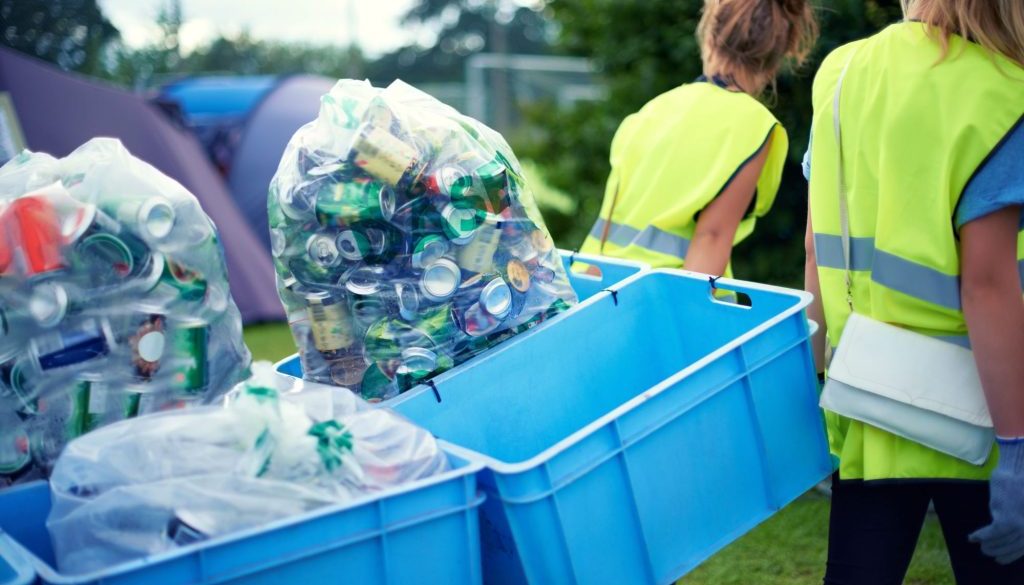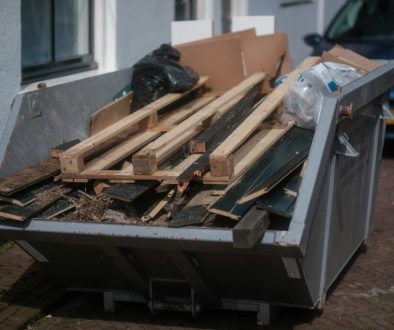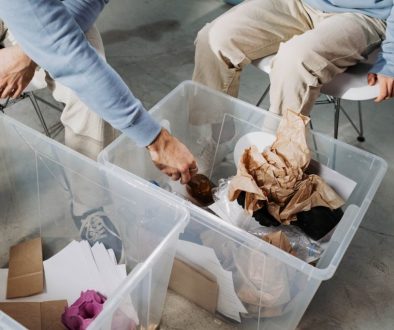Organising and executing any event, be it a music festival, a wedding or a corporate function, requires careful planning and attention to detail, especially when it comes to waste management. Ensuring that rubbish is disposed of efficiently and in an eco-friendly manner is crucial for the success and overall presentation of the event while also reflecting positively on the organisers. As a family-run skip hire and aggregate company servicing Staffordshire, our aim, at Enviro Skip Hire, is to guide event planners in making informed decisions on waste management, focusing on the benefits that professional skip hire services can provide to ensure a smooth and environmentally conscious approach to rubbish disposal.
Join us as we explore the vital role of skip hire services in successful event waste management, offering expert advice to help organisers create memorable and eco-friendly experiences. By embracing professional waste management solutions and prioritising sustainable practices, event planners can demonstrate their commitment to a cleaner, greener approach to hosting events in their communities.
1. Selecting the Right Skip for Your Event
Choosing the most suitable skip for your specific event can be crucial to the overall efficiency of waste management. While making this decision, take the following factors into account:
- Expected number of guests: Estimating the volume of waste your event will generate plays a key role in determining the right skip size. Larger skips would be necessary for bigger events, while smaller skips may suffice for more intimate gatherings.
- Type of waste: Evaluate the type of rubbish likely to be generated at your event, such as food waste, packaging, or decorations. Some materials may require specialised skips or additional services.
- Location accessibility: Ensure the selected event location has ample space and accessibility for both loading and collecting skips, allowing for smooth waste management operations.
2. Establishing Recycling and Waste Segregation Practices
Effective recycling and waste segregation practices are crucial for environmentally friendly event waste management. Follow these practical tips to facilitate the implementation of responsible waste disposal strategies:
- Develop a waste management plan: Create a detailed plan outlining the handling, separation, storage, and disposal of different waste materials, and share the information with your event team.
- Provide labelled receptacles: Place dedicated containers with clear labels for recyclable materials in high-traffic areas, making it easy for attendees to dispose of waste responsibly.
- Collaborate with recycling-focused skip providers: Engage a skip hire service committed to recycling as much waste as possible to ensure that the collected rubbish is processed efficiently and responsibly.
3. Ensuring Safe Disposal of Hazardous Waste
Safe disposal of hazardous waste, while usually only a minor component of the waste produced at events, should not be overlooked. To effectively manage any hazardous materials generated, consider the following recommendations:
- Identify potential hazardous waste: Familiarise yourself with hazardous waste types, such as battery-powered devices, electronic waste, and certain cleaning chemicals that may be generated at your event.
- Proper storage and separation: Safely store hazardous waste materials in designated, secure containers or areas to minimise the risk of contamination and mishandling.
- Work with licensed disposal service providers: Ensure that any hazardous waste is handled and disposed of by a licensed waste management company in compliance with all relevant regulations.
4. Reducing the Environmental Impact of Your Event with Sustainable Practices
Adopting sustainable practices for your event waste management can positively impact the environment and your event’s image. Consider the following environmentally friendly strategies:
- Use sustainable materials: Opt for biodegradable, compostable, or recyclable materials when selecting event supplies and decorations to reduce the environmental impact of waste generated.
- Source local, eco-conscious suppliers: Hire suppliers and catering services that use locally sourced and sustainable products, supporting both the local economy and the environment.
- Foster a culture of conservation: Encourage guests and staff to be mindful of their environmental responsibility, promoting the use of reusable items and minimal waste generation throughout the event.
5. Utilising Technology for Streamlined Waste Management
Incorporating technology into waste management practices can significantly streamline the process and enhance efficiency. Consider the following technological solutions:
- Waste tracking systems: Implement digital platforms or apps that enable real-time tracking of waste generation, collection schedules, and recycling metrics, allowing for better management and optimisation of resources.
- Smart bins and sensors: Install smart bins equipped with sensors to monitor fill levels and optimise waste collection routes, reducing unnecessary pickups and minimising resource wastage.
- Data analytics for optimisation: Utilize data analytics tools to analyse waste composition, identify patterns, and optimise waste management strategies, leading to more informed decision-making and resource allocation.
- Integration with sustainability platforms: Integrate waste management systems with broader sustainability platforms or initiatives to track environmental impact, set goals, and showcase achievements in reducing waste and promoting eco-friendly practices.
6. Community Engagement and Education Initiatives
Engaging the local community and educating event attendees about waste management and environmental conservation can foster a sense of collective responsibility and encourage sustainable behaviours. Consider the following community engagement and education initiatives:
- Interactive workshops and demonstrations: Organize workshops, demonstrations, or interactive sessions during the event to educate attendees about waste reduction, recycling, and composting techniques, empowering them to make environmentally conscious choices.
- Partnerships with environmental organisations: Collaborate with local environmental organisations or waste management authorities to provide informational materials, resources, and guidance on sustainable practices and waste disposal options.
- Volunteer participation programs: Recruit volunteers from the community to assist with waste management tasks during the event, providing opportunities for hands-on involvement and fostering a sense of ownership and pride in maintaining a clean and sustainable environment.
- Promotion of community cleanup efforts: Encourage event attendees to participate in post-event cleanup activities or community cleanup initiatives, reinforcing the importance of collective action in preserving and protecting the local environment.
Conclusion
Efficient waste management is integral to the success of any event, reflecting positively on organisers and ensuring that minimal harm is done to our environment. By carefully selecting the appropriate skips, embracing recycling and waste segregation strategies, and prioritising safe disposal of hazardous waste, event planners can create successful, eco-friendly experiences that cater to their guests while preserving the environment.
If you’re planning an event and require guidance on sustainable waste management practices, Enviro Skip Hire is here to help. We can discuss your event’s unique needs and learn how our skip hire services can support your quest for an environmentally responsible, memorable event. Contact us today to hire a skip in Sandbach or utilise our other services!




